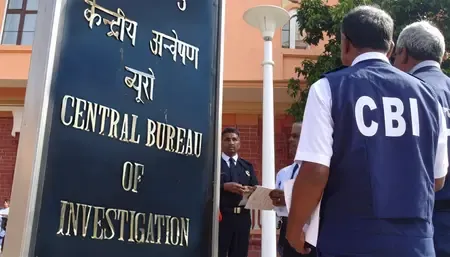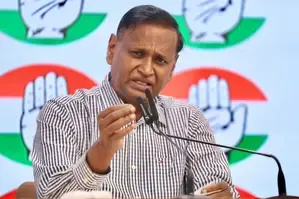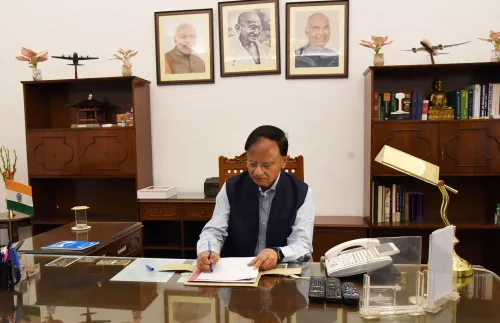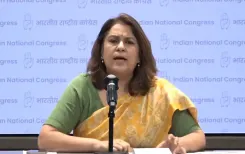What Sentences Were Handed Down in the KVIC Bribery Case?

Synopsis
Key Takeaways
- KVIC officer sentenced to four years
- Private individual sentenced to three years
- Bribery case involved illegal loan processing
- Case registered in 2017
- CBI's ongoing efforts against corruption
New Delhi, Nov 27 (NationPress) The CBI Court Ghaziabad has sentenced a Khadi and Village Industries Commission (KVIC) officer to four years of imprisonment along with a fine of Rs 50,000, and a private individual to three years of imprisonment with a Rs 10,000 fine in a bribery scandal, as reported by the CBI.
The accused parties are identified as Binod Kumar, an Assistant at the KVIC, Divisional Office in Meerut, and Surendra Khurana, also known as Sunny Khurana, a private individual.
The CBI initiated the case on September 15, 2017, accusing Binod Kumar and Surendra Khurana of soliciting and accepting bribes.
During his tenure as Assistant and District Coordinator at the KVIC from 2016 to 2017, Binod Kumar, in collaboration with Surendra Khurana, was implicated in a scheme to extract a Rs. 1,25,000 bribe for processing a fraudulent loan application related to a Cement Tiles Manufacturing Unit.
According to the CBI's press release, “The accused Binod Kumar, while serving at the KVIC Divisional Office in Meerut from November 21, 2016 to September 15, 2017, functioned as District Coordinator for Meerut and Shamli and conspired with Surendra Khurana to illegally obtain Rs. 1,25,000 from the complainant for processing an invalid loan application for Rs. 15,57,600 to establish a Cement Tiles Manufacturing Unit.”
Following the investigation, the CBI filed a charge sheet on November 13, 2017, and the court framed charges on January 15, 2018.
After a thorough trial, the court convicted and sentenced the accused parties accordingly.
In a related development, the CBI arrested an attorney, a Judicial Member of the Income Tax Appellate Tribunal (ITAT) Jaipur Bench, and an appellant for their suspected roles in a bribery scheme aimed at “settling appeals pending in the ITAT bench, Jaipur.”
This series of arrests were prompted by intelligence that exposed a systematic corruption racket within the tribunal.









